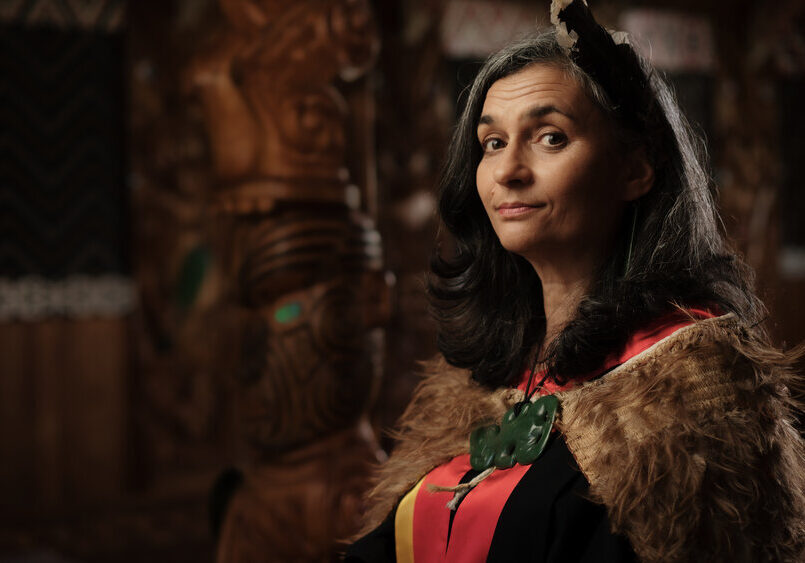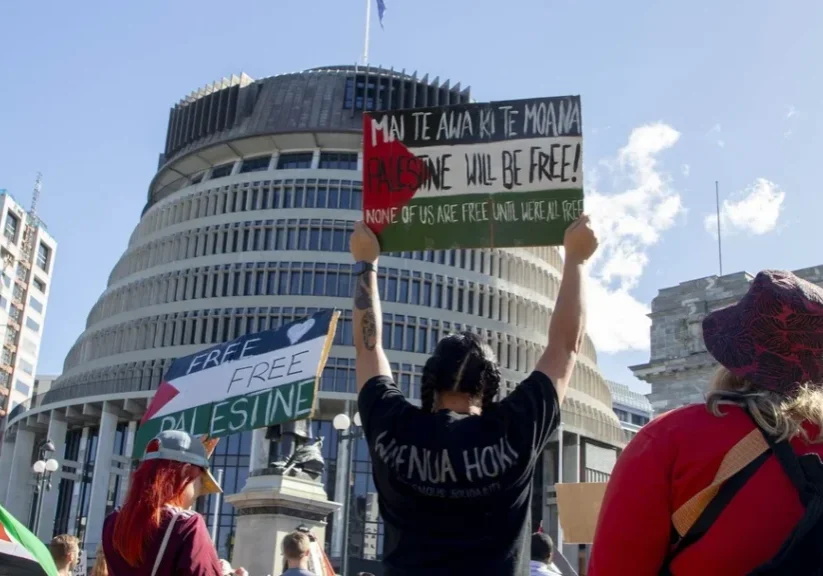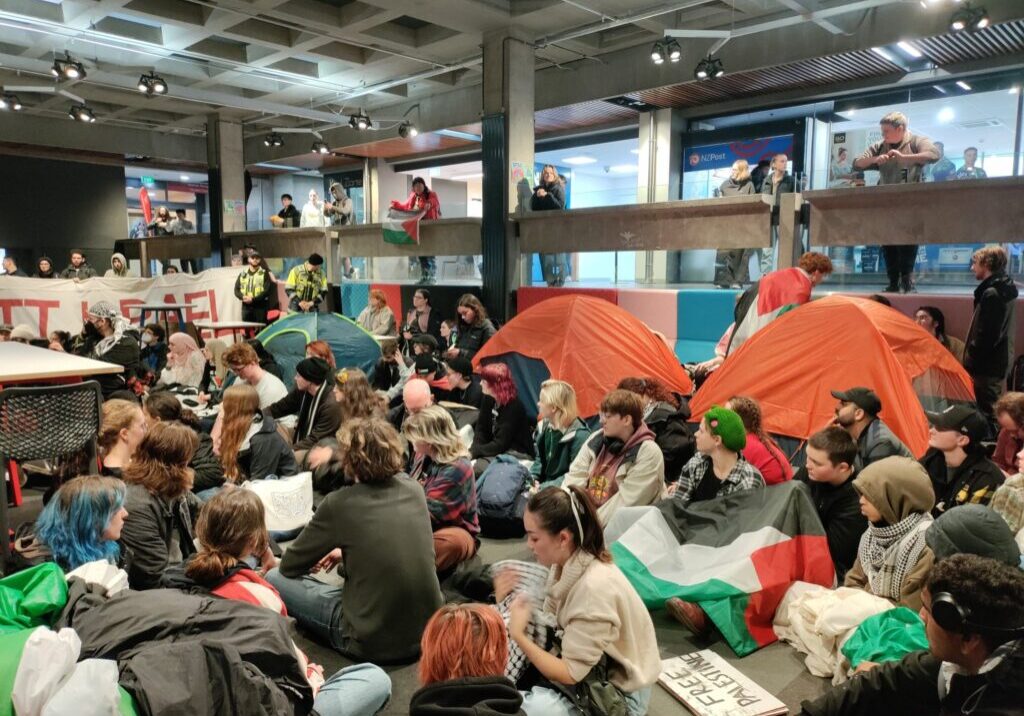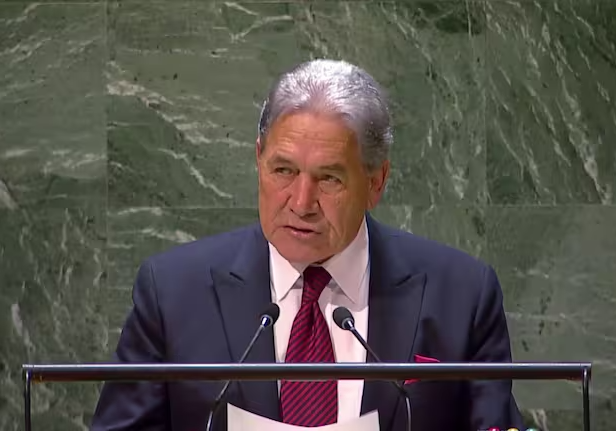Australia/Israel Review
AIR New Zealand: Surprises from a Predictable Election
Dec 20, 2011 | Miriam Bell
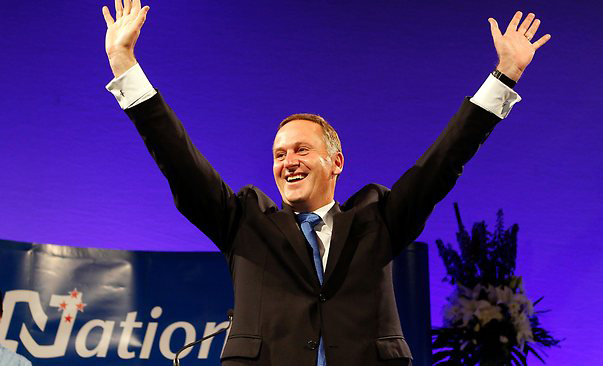
Miriam Bell
In a year punctuated by dramatic highs (the All Blacks finally winning the Rugby World Cup) and heartbreaking lows (the Christchurch earthquakes, the aftermath of the Pike River mining disaster), New Zealand’s general election seemed to creep up and take many Kiwis by surprise. The lowest voter turnout since 1887 and the long-predicted, largely unsurprising election outcome combined to create something of a feeling that the entire event was merely an exercise in checking off a necessary democratic box.
As predicted, the centre-right National party – led by the extremely popular John Key, the son of a Jewish refugee – swept to its second term in power with an impressive 47.3% of the party vote, which translates to 59 National MPs in the 121-seat parliament. However, the election results did provide a few surprises.
One such surprise was the return of former National party MP and Auckland mayor, John Banks, as the lone parliamentary representative of the decimated ACT party. ACT saw its representation fall from five seats to just one. But the party negotiated a deal whereby it will again be a supporting partner in a National-led government. Banks, who has proved himself friendly to the Jewish community in the past, will serve as minister for regulatory reform and small business, as well as associate minister of commerce and education.
Another surprise was the success of the Green party. While polls prior to the election had indicated a large surge in support for the Greens, the extent of their success, 11.1% of the party vote, was not predicted by many. The Greens’ share of the vote gave them 14 seats in parliament.
One significant change to the Greens’ line-up comes about thanks to the retirement of the party’s determinedly and trenchantly anti-Israel foreign affairs spokesperson Keith Locke. Second-term Green MP, Dr. Kennedy Graham, has taken over as foreign affairs spokesperson. Unlike his predecessor, Graham has worked in the area of foreign affairs and diplomacy for over three decades.
But perhaps the biggest surprise of the election was the return of the country’s long-time political maverick, Winston Peters, and his New Zealand First party. Consigned to oblivion after a resounding defeat in the 2008 election, the always-controversial Peters managed to lead his party back into parliament with a stunning 6.6% of the party vote. New Zealand First will now have eight MPs on the opposition benches.
Peters – who started his career as a National party MP – has a troubled relationship with his former party. Best known for his dislike of corporations and his anti-immigration stance, it is often almost impossible to anticipate where he might stand on most issues. For example: Peters studied Hebrew while at university but, in July this year, he was critical of Key regarding his handling of the case of the Israelis caught up in Christchurch’s February earthquake.
Meanwhile, New Zealand’s Labour party was left in a state of upheaval after it managed to win just 27.5% of the party vote. This was the party’s lowest-ever share of the vote, cutting its parliamentary representation to just 34 seats, and has led to an acknowledgement from the party that it desperately needs to review and reinvigorate itself.
As part of that process, former party leader, Phil Goff, and his deputy, fellow old-guard member Annette King, stepped down. The party then oversaw a very public battle for the leadership between two Auckland-based MPs, David Cunliffe and David Shearer.
The “two Davids”, as the media tagged the two contenders, both swore their selection would mean a definitive break from the past and a fresh start for the party. Both men are highly intelligent, energetic, and passionate. But Cunliffe, the more politically experienced and savvy of the two, was publicly regarded as less “likable” than Shearer, who had been in parliament for just two-and-a-half years before his leadership bid. Shearer, on the other hand, was promoted as similar to Key (thanks to his years of successful overseas work) yet different (his work was helping people while Key’s was making money).
On December 13, the Labour party caucus chose likability over experience and elected Shearer. The new leader said the party had lost its “connection with hard-working, talented Kiwis” and that, under his leadership, the party would rebuild and reconnect while working to stop the gap between rich and poor continuing to grow.
Of interest to the readers of this column may be Shearer’s vocal support of the Palestinian cause – a standpoint he shares with departing party leader and former Foreign Minister Phil Goff. For example, writing in September on the Labour party’s blog, Red Alert, about the Palestinian bid for unilateral recognition of their “statehood”, he concluded his post by saying: “New Zealand should support the Palestinians simply because it’s right. It won’t solve the problem, it won’t stop more settlers building on land that’s not theirs, but it’s an important principle.”
The composition of New Zealand’s latest parliament looks like it will have little effect on New Zealand’s recently improved relationship with both Israel and the country’s Jewish community. Murray McCully, one of National’s key strategists and a long-standing friend of Israel, will retain the foreign affairs portfolio.
New Zealand Jewish Council president, Stephen Goodman, said he looked forward to working with the government to ensure that New Zealand “remains a country where we, as Jews, are free to fully practise all aspects of our religion away from threats, dangers and discrimination”.
Tags: Australasia, New Zealand

